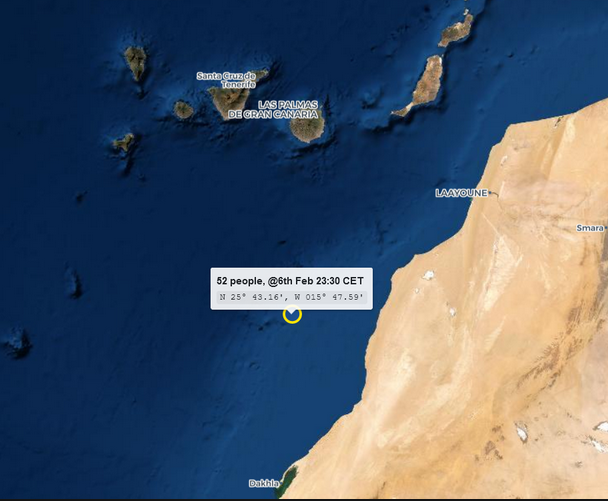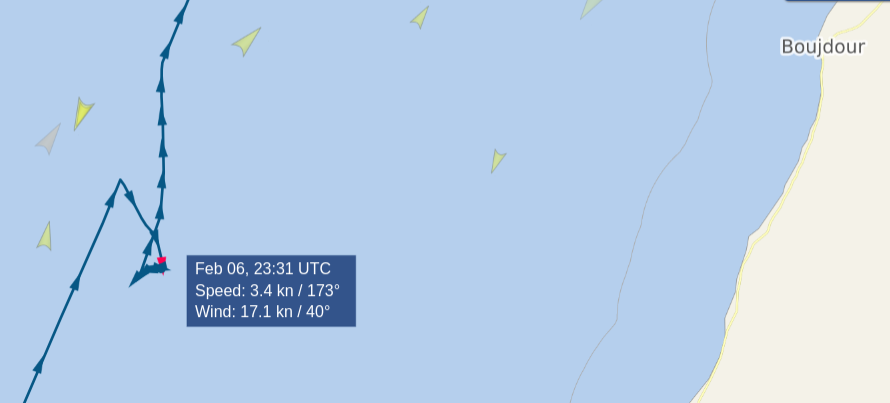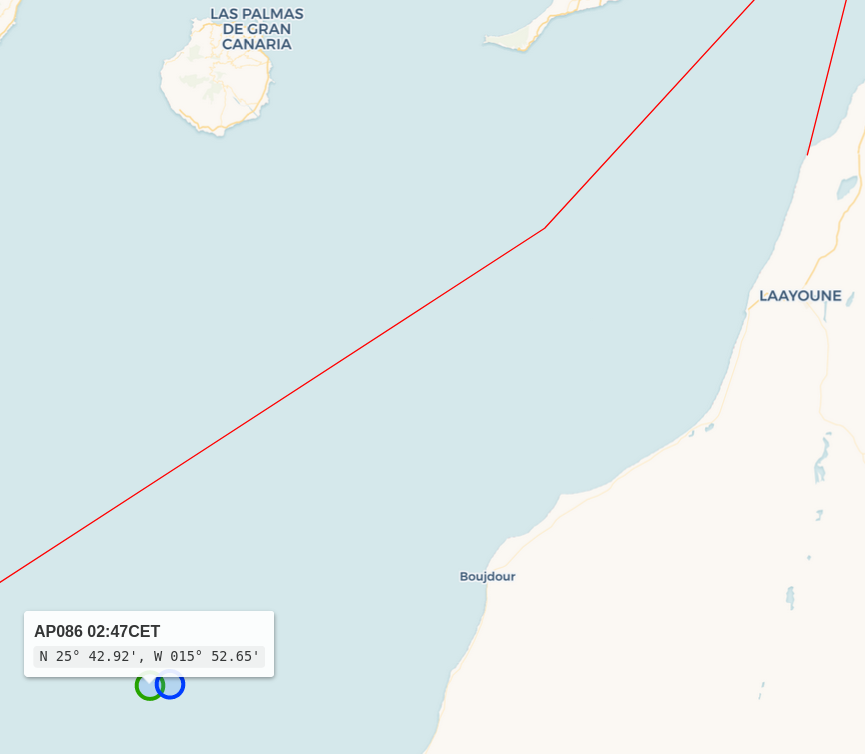During several calls, the people in distress stressed how urgent the situation was and they reported seeing a cargo ship (presumably the ARTABRO) at 00:14h on 7th February. However, in a phone call with MRCC Las Palmas at 00:31h, Alarm Phone was informed that the cargo ship was only there to monitor the situation and await a rescue operation carried out by the Moroccan Navy. We subsequently informed the Spanish rescue authorities about the dire state of the boat (half-deflated) and explained that a rubber dinghy in the middle of the Atlantic was an unseaworthy vessel which would by itself constitute a severe distress situation. However, in a call at at 01:06h to MRCC Madrid, it became clear that the Spanish authorities were set on ignoring the immediate danger and their obligation to coordinate rescue: The officer informed us that a Moroccan patrol vessel was on its way and the ETA was to be in 1.5h.
This egregious instance of non-assistance has probably resulted in several deaths: At 01:29h February the 7th, the people in distress informed us that a person had fallen into the water. They explained that a woman had fallen overboard and drowned. At 02:22h, they informed us that three further individuals had fallen into the water. We immediately relayed this information to the authorities, however, the MRCC Las Palmas officer maintained that the captain of the merchant vessel was not able to see any imminent danger and no situation of panic on board of the vessel. We implored the officer to call the people on the distressed boat himself in order to obtain first-hand information, but by 02:26 CET – 3 hours after we had first sent the phone number on board to the authorities – the MRCC still had made no effort to speak to the distressed directly. The GPS position we subsequently received showed that the boat had drifted ~4.5nm further west, into the Atlantic.
From 03:39h onwards, we were able to observe the merchant vessel change course and head northward again – although rescue had not yet arrived. We were informed by MRCC Rabat that the weather conditions did not allow for a rescue operation and that we would have to be patient. How is it possible that a partly deflated rubber boat does not receive assistance for hours because the situation is deemed by authorities to be under control, while, at the same time, authorities state that weather conditions are too bad to perform a rescue operation?
Only at 08:45h on Monday morning did MRCC Rabat confirm that a rescue vessel was now on site, but no further information was provided until 12:44h when we learned that the Moroccan Navy had rescued 53 people (including 20 women and one minor) and that no casualties were reported.
However, this account differs significantly from what we were told when we spoke to several different boat people once they were back in Western Sahara. According to them, they were only rescued at 11pm on Monday night and had to spend another night and day on board of the Moroccan SAR vessel, arriving in Dakhla on Tuesday evening, February 8th. During that time, no medical or other assistance was provided to the survivors, they were only given some water. And – most importantly – the survivors have now repeatedly confirmed that four people died before the Moroccan vessel ever arrived, one women and three men.


